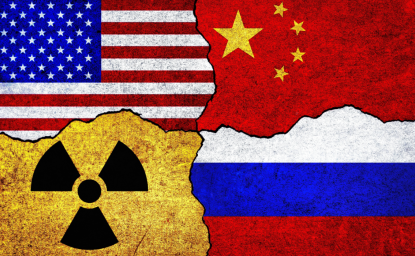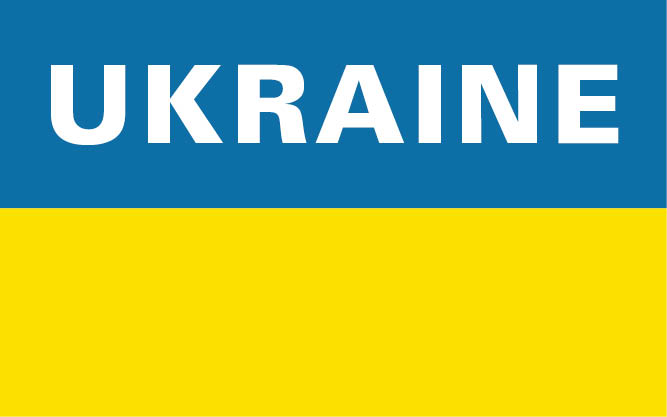Last week, government officials from sub-Saharan Africa were in Washington, DC to discuss the future of the African Growth and Opportunity Act (AGOA), a trade program that gives 32 countries tariff-free market access to the US on some 1,800 products. AGOA expires in September 2025, but with the clock ticking, proponents in Congress want to modernize the program, not just renew it. To be most successful, this modernization must empower allied companies who demonstrate the ability to meet labor and environmental standards while operating on the continent.
The AGOA Renewal and Improvement Act, or “Act,” which was introduced by Senator Chris Coons (D-DE) and Senator James Risch (R-ID) in April, provides a valuable blueprint. The Act makes several innovations. Importantly, it bridges AGOA to the 55-nation nation African Continental Free Trade Area (AfCFTA). Modifications to the Act would help it address the most important reasons AGOA is undersubscribed and underutilized.
What’s at stake reforming AGOA? Consider the case of US supply chains in critical minerals. In June, the Senate Finance Committee held hearings on “revitalizing and renewing” AGOA, GSP and other trade preferences. Chairman Ron Wyden (D-OR) explained that AGOA, in particular, is one of the keys to America’s strategy to build resilient supply chains in “critical minerals.” AGOA will come up short in this regard, however, if it doesn’t take a more holistic approach to labor and environmental standards.
The US has an insatiable appetite for critical minerals. Building an economy that is net-zero by 2050 will hinge on getting access to unprecedented amounts of minerals like cobalt, cooper and aluminum. President Joe Biden’s Executive Order 13953 identified 35 essential minerals on which US economic growth, and the country’s national security, depend. Soberingly, imports tally more than half of consumption for 31 of these, and 100% of 14. Biden’s mandate on electric vehicles alone will require more cobalt for batteries than is currently being mined and processed the world over.
AGOA can be the game changer. The International Monetary Fund (IMF) reports that sub-Saharan Africa has 30% of proven critical mineral reserves of nickel, cobalt and lithium. Strikingly, the DRC, by itself, accounts for 70% all mined cobalt and has half the globe’s total proven reserves.
AGOA, like GSP, has “eligibility” criteria that hinges on countries meeting labor and environmental standards. If a beneficiary nation fails to comply with these criteria, the president can “withdraw, suspend, or limit” its tariff-free access to the US market. In its 2022 Biennial Report on AGOA, for example, the US Trade Representative (USTR) recounts that reviews in 2021 led Ethiopia, Guinea and Mali to lose eligibility, while the Democratic Republic of the Congo (DRC) was reinstated.
This precludes companies that are complying by the standards from gaining the benefit of AGOA in countries that are not abiding by the standards more broadly. This significantly limits the ability to engage in countries with vital mineral deposits but challenging operating environments.
The Act would do well to give companies and their supply chains agency to gain the benefits of AGOA when the demonstrate compliance with labor and environmental standards.
Some in Congress fear that AGOA and GSP incentivize beneficiaries to “race to the bottom” over labor and environmental standards to lower their cost of doing business. Yet, the US International Trade Commission (ITC) found that foreign firms selling to wealthy countries abide by higher labor and environmental standards than non-exporting firms in these same countries. The lesson is that more emphasis should be put on trade as a “pull” factor at the company- and supply chain levels, -level, rather than just focusing on sanctioning as a “push” factor at the country level.
The template for focusing on “pull” over “push” factors is in plain sight. On labor standards, Section 307 of the Tariff Act of 1930 is enforced by US Customs and Border Protection (CBP), which looks into allegations that foreign firms and industries are falling foul of internationally-recognized worker rights. As a penalty for non-compliance, CBP can issue company-specific or country-wide “withhold release orders” (WROs) on imports, including country-wide WROs. AGOA should do the same. The program would be better subscribed and utilized if firms were directly held accountable for complying with labor standards, rather than being stripped of their agency in country-wide assessments.
On environmental standards, AGOA should borrow from the European Union’s Regulation on Deforestation Free Products (EUDR). This regulation covers trade in cattle, cocoa, coffee, palm, rubber, soya and wood, requiring foreign firms to submit “due diligence” statements on the risks that they pose with respect to deforestation up and down their supply chains. Product traceability is monitored by national authorities using geolocation data up and down supply chains. There are, of course, provisions to address compliance on a country basis as well. To help raise environmental standards through AGOA, the Act should emulate EUDR’s balance of “pull” versus “push” inducements under EUDR.
The USTR’s 2022 review of the DRC commented on labor standards, but said nothing about firm- and supply-chain initiatives to prevent sourcing cobalt from artisanal and small-scale mining (ASM) found to use child, forced or compulsory labor. AGOA reviews must give more weight to initiatives like this, rewarding islands of excellence which, as the ITC found, do more for worker rights than governments ratifying international conventions on labor standards.
Company- and supply-chain audits could use a mix of global standards and private-sector standards in this regard. First, the US Department of Energy points out standards developed by the International Organization of Standardization (ISO). For example, ISO/TC 298 concerns Rare Earth Elements, while ISO/TC 333 is on Lithium. In pursuit of best practices, these are global focal points. Australia, Canada, China, India, Japan Korea, the US and 22 “observing” countries already subscribe to ISO/TC 298, which has taken up quality control systems for packaging and recycling, among other issues.
Second, private-sector standards should be taken into consideration as well. For example, Glencore, one of the world’s largest diversified natural resource companies and the biggest Western operator in the DRC, helped found the Fair Cobalt Alliance, an alliance of firms that have agreed to checks against ASM. Additionally, through its controlling interests in DRC-based Kamoto Copper Company and Mutanda Group, Glencore is sourcing both copper and cobalt with best-in-class environmental practices; each of these minerals are vital for meeting the US’s demand for consumer technology and clean energy. Glencores’ Kamoto copper mine, for example, has partnered with the Faculty of Agronomic Sciences at the University of Lubumbashi to install wetlands for water treatment and promote reforestation and agroforestry.
Glencore also works with civil society, the government of the DRC, and the Organization for Economic Cooperation and Development on corporate governance more broadly. These labor, sustainability, and governance initiatives merit consideration alongside country-wide factors in AGOA reviews.
Returning to the example EUDR, technology can also help AGOA audits of compliance with global and private-sector standards. For example, blockchain can secure and authenticate the data collected from mining operations on through to processors and end-users. By lending greater confidence to these audits, technology can help Africa build supply chains that capture more of value-added from finishing critical minerals. As the IMF points out, whereas raw bauxite fetches $65/ton on world markets, processed aluminum commands $2,335/ton.
The AGOA Renewal and Improvement Act is an important step toward making the program viable through 2041. It bridges AGOA to AfCFTA and even invites “graduated” beneficiaries to seek free trade agreements with the US. As a friendly amendment, the Act should give firms and supply chains more agency in gaining the benefits of AGOA with demonstrated compliance with labor and environmental standards. This would be an innovative step in using trade as a “pull” factor to lift worker rights and fight climate change, rather than exclusively punishing non-compliance at the country level as “push” factor.
The opinion's expressed are solely that of the author and do not represent the views of the Wilson Center.
Author

Karl F. Landegger Professor of International Business Diplomacy at the Edmund A. Walsh School of Foreign Service at Georgetown University

Wahba Institute for Strategic Competition
The Wahba Institute for Strategic Competition works to shape conversations and inspire meaningful action to strengthen technology, trade, infrastructure, and energy as part of American economic and global leadership that benefits the nation and the world. Read more

Explore More
Browse Insights & Analysis
360° View of the African Growth and Opportunity Act (AGOA)

US Inaction Is Ceding the Global Nuclear Market to China and Russia




